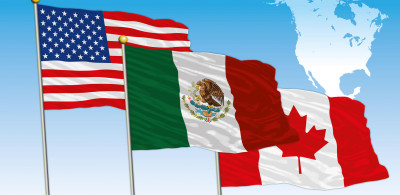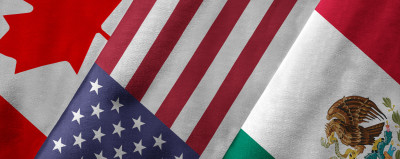It is that time of year again. Time to renew your CUSMA (aka USMCA) annual certifications for 2023. As was the case under the previous NAFTA, many North American importers, exporters, and producers are presently in the process of renewing their blanket certifications for the upcoming year and sending the certifications to their clients and customs brokers.
Did you know that the CUSMA certification of origin is a legal trading document that must be validated and signed by an individual with the appropriate knowledge of the product(s) being certified and who has authority to sign on behalf of the company?
Did you know that only goods produced in Canada, the United States or Mexico, and which have undergone a proper CUSMA origin analysis (carried out by the producer of the goods), and have been determined to be “originating” goods in accordance with the CUSMA rules of origin are allowed to be certified on a CUSMA certification of origin?
If you are a Canadian importer who relies on CUSMA certifications issued by U.S. exporters or producers, what processes has your company put in place to verify the validity of these certifications?
When the Canada Border Services Agency (CBSA) audits the certifications used by your company to justify your CUSMA free trade claims on imported goods, should CBSA invalidate any of those certifications, did you know that the CBSA can penalize and reassess you, the importer?
What if you are a Canadian exporter who acts as a non-resident importer into the United States; did you know that U.S. Customs and Border Protection (CBP) can audit your U.S. customs entries as well as any USMCA (aka CUSMA) certifications of origin used by your company to claim the USMCA free trade preference?
These are questions that all importers, who rely on CUSMA certifications of origin, need to ask themselves.
When an importer claims free trade status under the CUSMA, that importer is making a legal declaration to Customs authorities that the imported goods qualify as CUSMA “originating” goods in accordance with all requirements and rules of the agreement, and that the goods are legally entitled to a “duty-free” entry.
Unfortunately, too many importers, exporters and producers certify goods and/or claim free trade status intuitively without carrying out the required origin analysis. Or they neglect to implement origin verification processes with their suppliers who issue certifications. Or they fail to maintain the necessary audit trail and proof of origin documents to sustain an origin audit.
CBSA can audit CUSMA claims (or previous NAFTA claims) up to four (4) years retroactive here in Canada and up to five (5) years retroactive by CBP in the U.S. If your preferential origin claims are invalidated because the “originating” status of the certified goods cannot be proven to CBSA or CBP’s satisfaction, they can sanction your company with hefty fines and penalties as well as reassess you for the retroactive duties, taxes and interest charges that would become owing. Therefore, it is vital to ensure compliance and that CUSMA certifications used are, in fact, valid for the goods to be entitled to the free-trade preference.
CUSMA liability:
- Exporters and manufacturers are responsible to ensure the goods they certify are correctly classified per the Harmonized System (tariff classification) and that they are “originating” in accordance with the rules of origin set out in the CUSMA.
- However, it will always be the importer who will pay the costs (e.g., reassessment of duty, interest, and penalties) if the origin preference claim is overturned by Customs in the importing country.
- Importers should include an indemnification clause on purchase agreements (e.g., P.O., contract, sales agreement) to hold their foreign vendors liable for invalid or incorrect CUSMA Certifications of Origin. Such indemnification should include a covenant from the foreign vendor, whether the exporter or the producer, that it will cooperate in the event of a CUSMA origin verification (audit) undertaken by Customs in the importing country.
- Importers should not blindly accept CUSMA Certifications. Importers should be pro-active and verify the validity of CUSMA Certifications received from their vendors:
- Is the certification properly completed with all minimum data?
- Is the certification done by someone who has knowledge of the product being certified, and does that person have authority to sign on behalf of the company? Has the producer conducted a proper CUSMA origin analysis before certifying the goods?
- Does the exporter/producer who issued the certification keep adequate records for 5 years?
Recordkeeping:
Importers, Exporters and Producers are required to keep records supporting their CUSMA claims for up to 5 years.
IMPORTER:
- Copies of all CUSMA certifications received from vendors for imported goods
EXPORTER:
- Copies of all CUSMA certifications issued to clients for exported goods
- If applicable, copies of all back-up CUSMA certifications received from producer(s)
PRODUCER:
- Copies of all CUSMA certifications issued to clients for goods produced
- All data and records demonstrating that the goods qualify as “originating” under the CUSMA
- Documented CUSMA origin analysis based on Bill of Material (BOM) data
- Copies of all CUSMA certifications received from North American suppliers for “originating” components and materials used in production of the finished good
W2C can help!
W2C offers various consulting services related to free-trade agreements:
- Training Courses and seminars on management of origin preferences
- Determining correct HS Tariff Classifications (needed to ascertain applicable rules origin)
- Carrying out origin analysis (CUSMA, CETA, CPTPP, etc.)
- Duty recovery and post-entry corrections
- Audit support, during CBSA or CBP origin audits
- Requests for Advance Rulings (CBSA) or Binding Rulings (CBP) on origin
Our CUSMA Certification template is available here.
For more information contact your W2C representative today.



